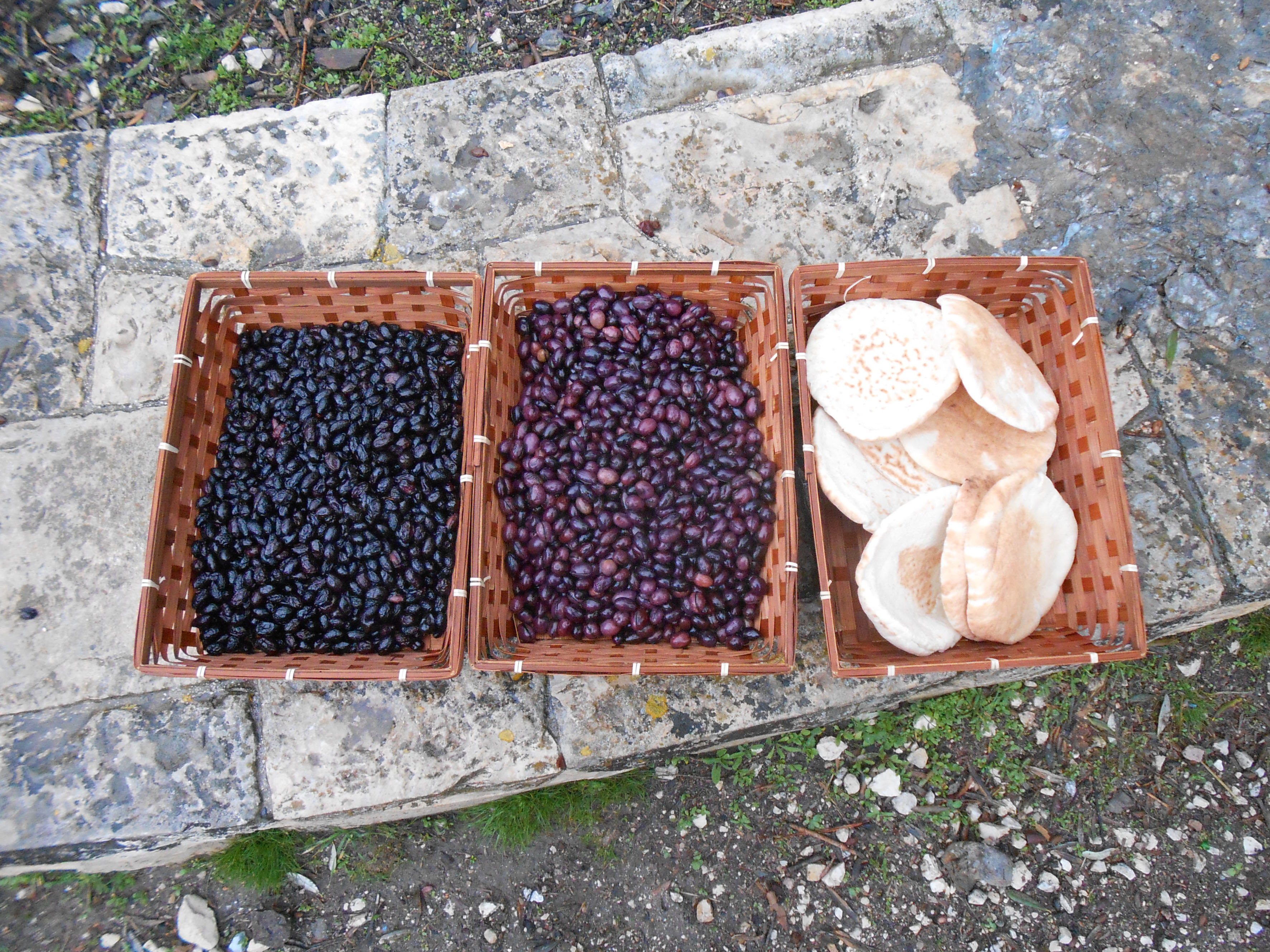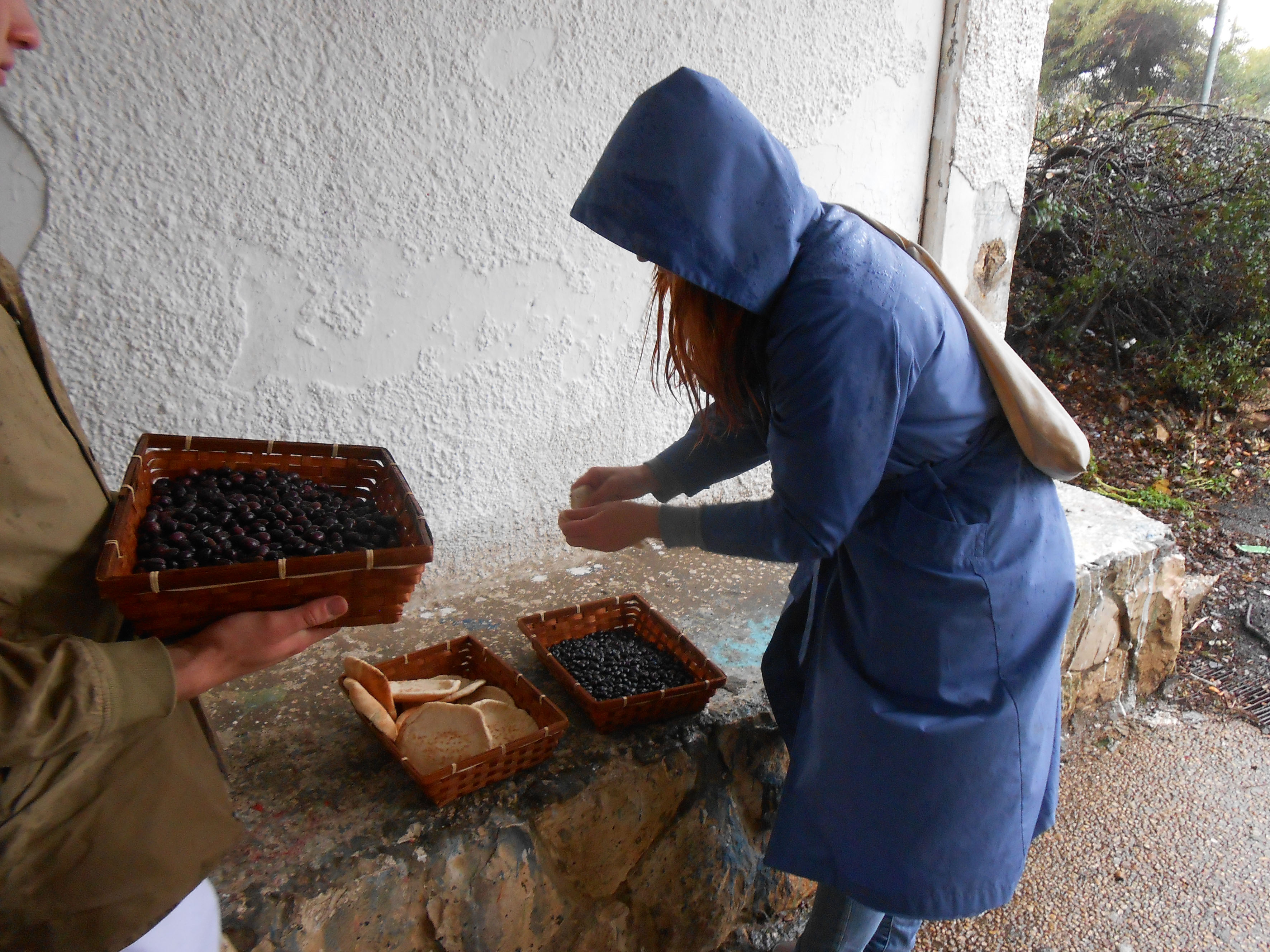כָּבוּשׁ /kah-voush/
public intervention
public intervention
The abbundance of olives in Israel’s public spaces and their waste initiated an investigation leading to surprising discoveries about the influence of ethnic tensions on the perception of public space.
more about the project︎︎︎
more about the project︎︎︎
כָּבוּשׁ /kah-voush/
adj.
occupied, pickled, preserved, canned
![]()
The quantity of olives in the public space of Jerusalem and Israel in general is astonishing. Even though local regulations enable people to pick any fruits growing on branches leaning into public spaces, olives from public spaces are all wasted. The olives fall from the trees on the pavement, where the passerby walk on them, releasing the oil on the pavement.
![]()
adj.
occupied, pickled, preserved, canned

The quantity of olives in the public space of Jerusalem and Israel in general is astonishing. Even though local regulations enable people to pick any fruits growing on branches leaning into public spaces, olives from public spaces are all wasted. The olives fall from the trees on the pavement, where the passerby walk on them, releasing the oil on the pavement.
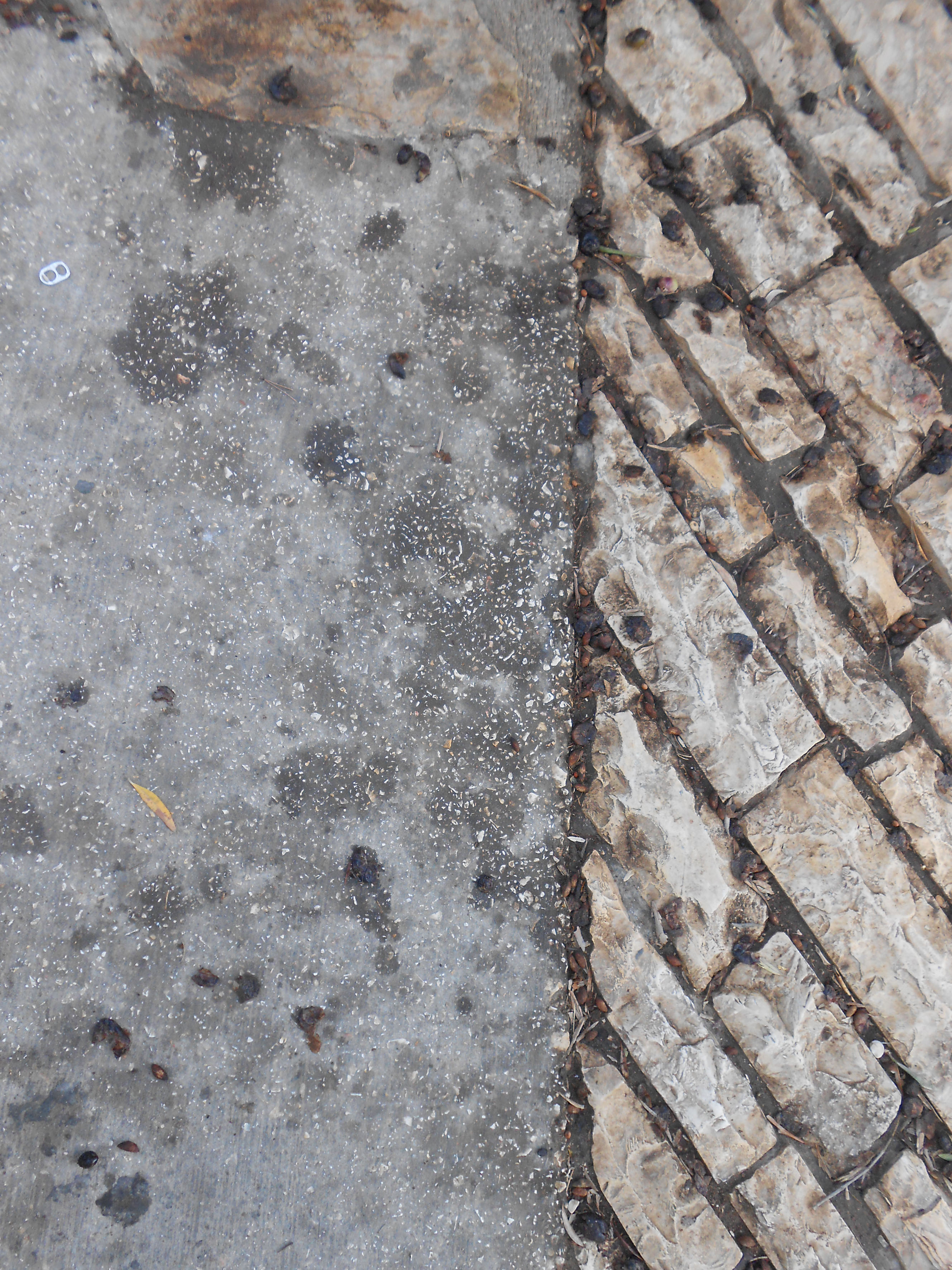
The destruction of one’s olive tree being the supreme expression of hatered in the conflict between Israel’s Jewish and Arab communities, the value of olives in Israeli and broader Middle Eastern culture is far from being only symbolic. In the light of these facts, their waste is hard to understand, even if we consider psychological barriers or social norms discouraging people from picking the olives. Nor the fact that olives require pickling before their consumption did not seem to be the real reason of the taboo on picking the olives.
The actual reasons were revealed in discussions with local people. After gathering olives in one of Jerusalem’s parks a degustation was organized for the neighborhood’s inhabitats.
![]()
![]()
The discussions revealed that the concept of public space has been marked by the country’s complex history. The olive trees growing in public spaces are associated with the image of olive orchards still owned by Arabs who had to flee the country. Throughout the year the orchards seem abandoned. Only in the harverst time do their owners return to collect the olives. Here also comes the controversy of the word כָּבוּשׁ meaning occupied and pickled in the same time.
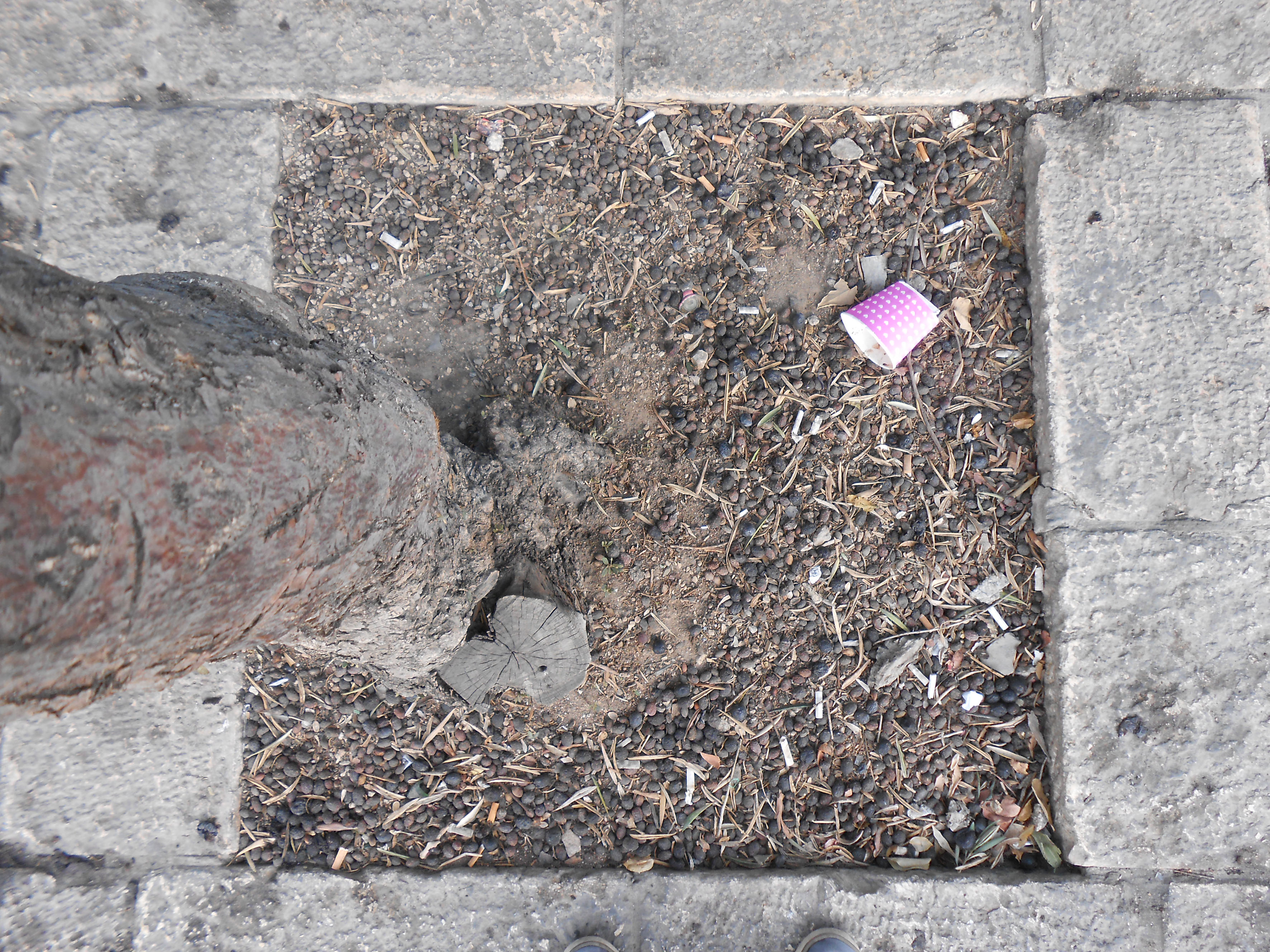
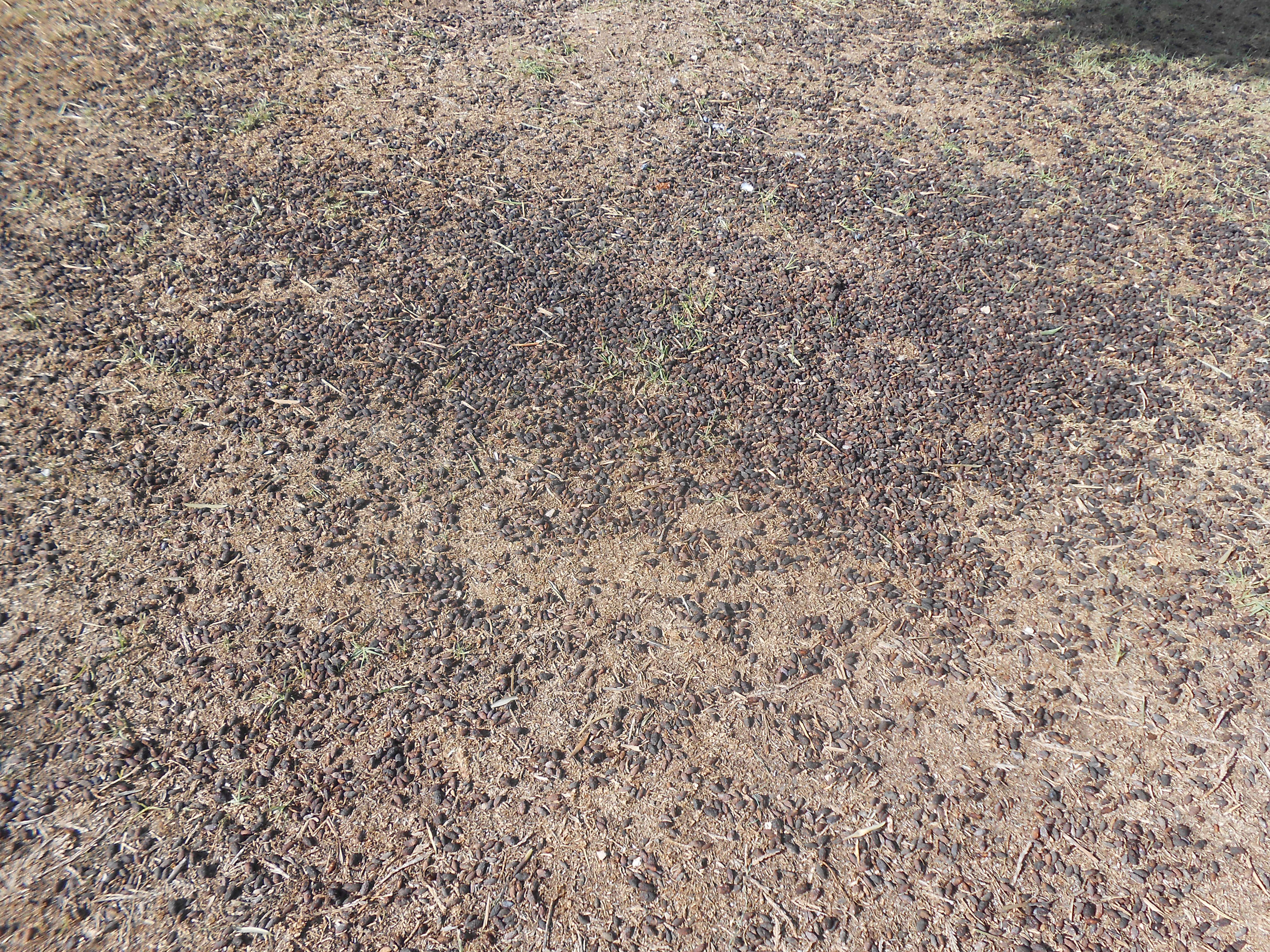
The discussions revealed that the concept of public space has been marked by the country’s complex history. The olive trees growing in public spaces are associated with the image of olive orchards still owned by Arabs who had to flee the country. Throughout the year the orchards seem abandoned. Only in the harverst time do their owners return to collect the olives. Here also comes the controversy of the word כָּבוּשׁ meaning occupied and pickled in the same time.
